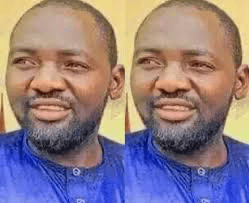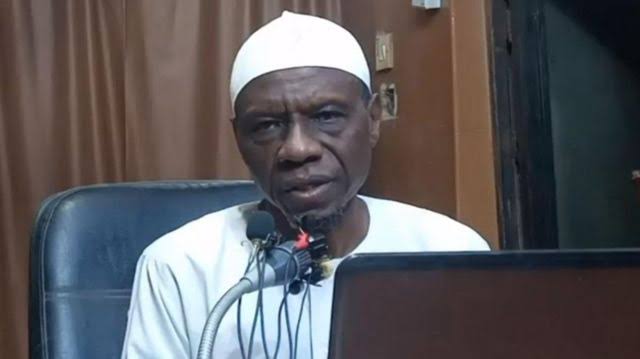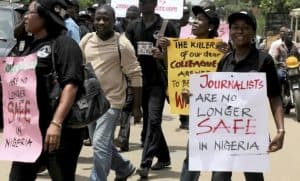
Nigeria’s religious diversity drives no cause for alarm. At every corner of the country, everyone is free to act or express their religious views. But there are cases when religion becomes sensitive. One of such is when a person abuses or makes derogatory comments against the Muslim’s Prophet Muhammad, the last divine messenger, according to the Islamic religion.
Despite not being an Islamic believer, Deborah Samuel, a student at the Sokoto State College of Education, was mobbed and killed last year after accusations of abusing Prophet Muhammad SAW. They called it blasphemy, a term used for an act that expresses disrespect towards God or a particular religion.
When Deborah met her untimely demise, the subsequent national outcry quickly pivoted towards religious intolerance and perceived Christian persecution in Sokoto. But that may not have been the case.

Throughout the Northern part of Nigeria, especially in recent history, mobs have executed up to a dozen people extrajudicially since 1999 in isolated cases. And more than 300 deaths were recorded from riots triggered by blasphemy accusations. The bloodiest, so far, was the one that sprung out on November 20, 2002.
On this fateful day, the cities of Kaduna and Abuja became the epicentres of a rampage involving rioters from both the Muslim and Christian religions. The root of this chaos can be traced back to an article published in a daily newspaper, Thisday, which postulated that the Prophet Muhammad would have given his nod to a Miss World pageant occurring in Abuja. Isioma Daniel, a columnist for the newspaper, conjectured that the Prophet would likely have chosen a wife from among the contestants. This caused a national outrage and quickly ignited a firestorm of religious violence.
Accusing the newspaper of blasphemy, Muslim mobs torched ThisDay’s office building in Kaduna with fire, then further extended their rage towards churches and property owned by Christians.
The ferocity of the mobs painted the towns in shades of violence and destruction, with Christian mobs rising to confront their Muslim counterparts. The chaos escalated to an alarming degree, prompting intervention by soldiers and police, desperate to curtail the spiralling violence. According to a report, the confrontation left around 250 individuals dead, marking it as one of the most devastating incident in the series of religious clashes in Nigeria.
The most recent victim of the killings related to blasphemy was a Muslim in Sokoto, Usman Buda, who was maimed and butchered in June.

When Usman Buda left his family—wife, children and parents—and headed for work, he did not know he was bidding them his final farewell. Because a few hours later, several people, most of whom were his fellow butchers at the Sokoto abattoir where he worked as a butcher, stoned him to death.
The mob had accused him of using derogatory words against Prophet Muhammad. They called it “blasphemy”.
However, eyewitnesses’ accounts were different from the mob accusations. Someone who refused to be named recounted Buda preaching to a beggar to stop using Prophet Muhammad’s name to beg, as such is unacceptable in Islam. According to the witness, some people at the place misconstrued Buda’s words and started throwing all sorts of things at him, claiming he uttered derogatory words against Prophet Muhammad.
Unlike Deborah, a Christian, Buda was a muslim who met his demise at the hands of fellow Muslims. But their ends were similar just like Deborah, the mob beat, stoned and killed Buda the butcher.
“Those who mobbed and killed people are not carrying out any religious judgement,” noted Barrister Umar Hassan, a lawyer in Bauchi. “Those people who kill extrajudicially deserve no other punishment but death.”
Blasphemy: Muslims Persecuting Muslim
Usman Buda was not the first person to face persecution at the hands of fellow Muslims, and he was also not the last. Imam Idris Abdulaziz, a muslim cleric in Bauchi, spent 39 days at the correctional centre for alleged blasphemous utterances during his sermon. This was after Fityanul Islam of Nigeria, a group in the state, called for his arrest, saying his utterances were derogatory to Prophet Muhammad and thus blasphemous.
Imam Abdulaziz, an adherent of the Sunni School, one of the sects of the Islam in Nigeria, was always emphatic against praying for favours from someone other than Allah SWT, Muslim term for the Almighty God. In April, during one of his sermons in the month of Ramadan, Islamic month of fasting, Imam spoke against invoking Prophet Muhammad’s name to pray for favours.
This does not resonate with the belief of the members of the Fityanul Islam of Nigeria. Then in May, the police, acting on the protest and petition filed by the group, charged Imam Abdulaziz to court for inciting public disturbance.
“The police opted to charge Imam Aziz for ‘incitement of public disturbance’ because the laws we have in Bauchi do not include ‘blasphemy’,” revealed Barrister Hassan. “And to say Imam’s utterance constitutes an incitement is laughable because there is no such thing.”

For an offence to constitute an incitement of public disturbance, there must be a riot as an aftermath of the utterance or an attack on person or property. “There was no such thing in Bauchi when Imam made those words,” continued Barrister Hassan. “So, I don’t see where the police see their incitement of public disturbance.”
To Hassan, Imam’s case of blasphemy or incitement of public disturbance is nothing but persecution on his personality. At first, when the court granted bail to Imam, it imposed a condition that a traditional ruler should stand for him. But no one wants to do that, as the state, acting as the police by proxy, is already a party to the case. Not until the defence counsel applied to the court to review the condition and complement traditional rulers with religious leaders. At this time, Imam had already stayed more than a month in prison.
The legal battle between Imam and the police is part of the tragic trajectory of persecution sprouting from blasphemous offences in Nigeria. It is a testament that not only Christians like Deborah or Muslims like Buda are victims, but everyone or anyone no matter his high station who says something about Prophet Muhammad that someone or a group of people does not like.
Abduljabbar Kabara is an Islamic cleric in Kano state. Last year, he was sentenced to death by hanging after an Upper Shariah Court in the state convicted him for blasphemy and three other charges. A year prior in 2021, an Islamic singer, Yahaya Sharif in the state, met a similar fate. In the case filed by the police, Sharif was accused of committing blasphemy by calling Prophet Muhammad a “Kafir”, a Arabic word loosely translated as “unbeliever”.
The duo were sentenced under section 382 of the Shariah Appeal Court 2000, Kano State Law, which states that whoever publicly “insults any prophet of God shall be liable to death.”
The Tragic Beginning
One of the first notable cases of blasphemy was in 1999. A rumour had spread in Birnin Kebbi Local Government Area of Kebbi State that Abdullahi Umaru from Randali, a village in the local government, had insulted Prophet Muhammad. As a result, eight people from the area teamed up to implement the provision of Islamic law that prohibits abuse against the Prophet.
According to court documents, they abducted Umaru and detained him, then went to his village, Randali, to confirm whether he indeed made the utterances. In their sojourn, they met the village head in Kardi, a village near Randali and informed him that Umaru had been caught and the prescribed death punishment of whoever insulted the Holy Prophet Muhammad would be inflicted on him. “Whereupon the said village head did not say anything,” the court document reads in part.
Unfortunately, the village head’s silence was not enough to extend Umaru’s stay on earth. On the day he lost his life, the eight culprits, arbitrarily acting as the police implementing the law, took on the role of the judiciary as an adjudicator. They read to Umaru a part of Risala, a book containing crimes and punishments under Islamic law, that prescribed death punishment to whoever insulted Prophet Muhammad, and then declared him guilty afterwards.
After the recitation, the culprits matcheted Umaru in the neck, and then sliced his throat “like a goat”. The assailants stood and watched their victim bleed until he breathed no more.
Non-state actors undermine the law of the land when they persecute or kill people in the name of executing some laws, explained Barrister Hassan. Such an act is similar to terrorism when done in groups to further a political cause, and the perpetrators deserve nothing less than death. And this was the exact predicament the eight culprits who killed Umaru later faced.
Umaru’s killers were apprehended and dragged to court. The High Court of Justice sitting in Kebbi State found the eight culprits guilty of culpable homicide and sentenced them to death by hanging. On appeal, the Supreme Court of Nigeria ruled that while there is indeed a provision in the Risala for a death punishment for someone found guilty of blasphemy, “there is no legal justification in the action taken by the appellants in killing the deceased for his supposed offences,” ruled Supreme Court Justice Ibrahim Tanko.
“Islamic religion is not a primitive religion that allows its adherents to take the law into their own hands and to commit jungle justice. Instead, there is a judicial system in Islam which hears and determines cases including the trial of criminal offences and anybody accused of committing an offence against the religion or against a fellow Muslim brother should be taken to the court (either a Sharia or a secular/common law court) for adjudication.”
The court affirmed the decision of the high court to sentence them to death by hanging.
Blasphemy: An Intellectual Debate
In Islamic law, there is no controversy that death is the prescribed punishment for anyone who commits blasphemy, explained Abdulrahman Bala, a teacher at Ibn Taymiyya Islamiyyah, an Islamic and Arabic school in Sokoto. However, “there are stages that someone accused of blasphemy must go through before he or she can be punished,” he continued.
First, Bala noted, the person will be taken to a leader or constituted authority who will then call a judge or take the accused to court for adjudication. If the evidence proves the accused indeed blasphemes, then death punishment will be inflicted on him.
This is also the stance of the Supreme Court in the case of Kaza V. State where Justice Tanko said, “although, it is true that there is a provision in Risala which prescribes the punishment of death on any Muslim who insults the Holy Prophet, such punishment can only be imposed by the appropriate authority (i.e. the court) rather than by any member of the society whether a Muslim or otherwise.”
However, some utterances that lead to the accusation of blasphemy are considered part of the intellectual debates which have been in existence for centuries. For instance, Bala noted that what Buda said in Sokoto that led to his accusation of committing blasphemy and sadly his death was not really blasphemous.
If Usman was indeed correcting a beggar not to use Prophet Muhammad’s name to beg, Bala said, then those who killed him have committed two crimes. First, for killing an innocent man; second, for taking laws into their hands.
Bala holds that to ask for something from someone, one must do that only by using Allah’s name only. So, Usman Buda was right to correct the beggar and those who killed him were wrong.
“Usman is not the sinner who deserved to be killed,” said Bala. “Those who killed him were.”
What Usman reportedly said in Sokoto before the mob misconstrued it as blasphemy was the same with what Imam Aziz said in Bauchi. According to Barrister Hassan, their utterances were part of an intellectual debate which has been lingering for more than 400 years.
To see people being killed and persecuted simply because they express their views on an intellectual debate is a consequence of ignorance, asserted Hassan. “What is even more disheartening is the widespread nature of people who believe they can take laws into their own hands.”
Religion continues to be a litmus test for tolerance and harmonious coexistence. Two things must simultaneously happen: a vigorous campaign on tolerance for dissenting religious views especially around what constitutes blasphemy and a quick run of the wheel of justice on those who continue to perpetrate extra judicial killings in the name of religion. Until then, the tragic trajectory of blasphemous killings will continue to tick the clock of misfortune.
_____________________
This story was produced with funding support from the International Centre for Journalists (ICFJ) in partnership with Code for Africa.







